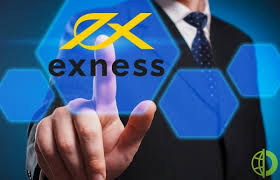
Understanding Competitive Exness Fees for Effective Trading
When it comes to trading forex, CFDs, and other financial instruments, understanding the fees associated with your broker can significantly impact your profitability. Exness is a well-known online broker that provides various trading options with competitive Exness fees. In this article, we will delve into the structure of these fees, how they compare to industry standards, and their implications for traders. To learn more about trading platforms in detail, visit Competitive Exness Fees https://thai-exbroker.com/.
1. Overview of Exness
Founded in 2008, Exness has quickly established itself as a reputable broker, offering a wide range of financial instruments and trading platforms. With a commitment to transparency and customer service, Exness operates under financial regulations in various jurisdictions. Traders are drawn to Exness not only for its accessible trading conditions but also for its competitive fee structure.
2. Types of Fees at Exness
Exness employs a range of fees that traders should be aware of. Understanding these fees is crucial for managing your trading costs effectively. Major types of fees include:
- Spreads: The difference between the buy (ask) and sell (bid) price. Exness offers both fixed and variable spreads depending on the account type.
- Commission: Some accounts may charge a commission on trades. This is typically applicable to accounts with lower spreads.
- Swap Rates: These are overnight fees applied to positions held longer than a trading day. They can be positive or negative depending on market conditions.
- Deposit and Withdrawal Fees: While many deposit methods are free, some may incur fees. It’s essential to check the specific costs for your chosen payment method.

3. Understanding Spreads
Spreads are the primary cost associated with trading on Exness, and they can vary significantly based on account type. For example, the Standard account typically features higher spreads than the Pro account, which has tighter spreads and a commission structure. Traders should analyze their trading style to determine which account type is best suited for their needs, as lower spreads can lead to reduced trading costs over time.
4. Commission Structures
While commissions may seem like an unnecessary expense, they can often be offset by narrower spreads. Exness offers accounts that operate on a commission basis, particularly the ECN (Electronic Communication Network) accounts. These accounts may have a low commission but are accompanied by tight spreads, allowing more professional traders to benefit from lower overall costs.
5. Swap Rates Explained
The concept of swap rates can be daunting for many traders. Swap rates, also known as rollover rates, are fees that brokers charge for amounts held overnight. Exness provides swap-free options for traders adhering to Islamic finance principles. Understanding swap rates is vital for long-term trading strategies, as they can eat into profits or even result in losses if not managed correctly.
6. Fees for Deposit and Withdrawal
One of the significant advantages of trading with Exness is its diverse range of deposit and withdrawal methods, many of which come with minimal to no fees. Options usually include bank transfers, credit cards, and various e-wallets. However, it’s crucial for traders to be aware of any potential fees associated with specific methods, especially when it comes to international transactions or less common payment processors.
7. How to Minimize Fees
Traders can employ several strategies to minimize fees when trading with Exness. Here are some practical tips:
- Choose the Right Account Type: Depending on your trading style, opting for an account with lower spreads and appropriate commission structure can reduce costs.
- Be Mindful of Swap Rates: For long-term traders, understanding how swap rates work and considering swap-free accounts can result in significant savings.
- Optimize Your Payment Methods: Select payment options that are free or carry the lowest fees, especially for withdrawals.
8. Competitive Analysis
When assessing Exness’s fees, it’s also useful to know how they compare to other brokers in the market. Many traders conduct a comparative analysis to determine the best overall value. Exness generally positions itself competitively against top brokers, with charging structures that are either lower or on par with industry standards.
9. Conclusion
In summary, understanding competitive Exness fees is essential for traders who wish to maximize their profitability and minimize unnecessary costs. By being mindful of spreads, commissions, and swap rates, as well as selecting the most appropriate account and payment methods, traders can significantly enhance their trading experience. As the financial markets evolve, staying informed about fees and potentially adjusting strategies accordingly can lead to successful trading ventures. Always conduct thorough research and continuously assess your trading approach in line with fee structures.
